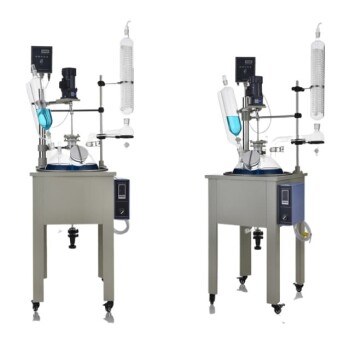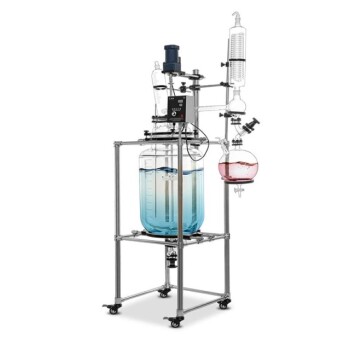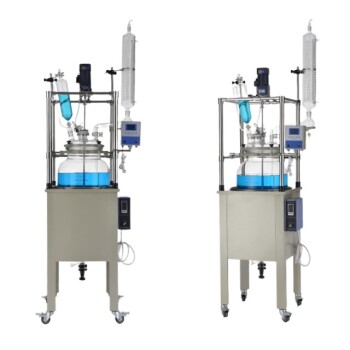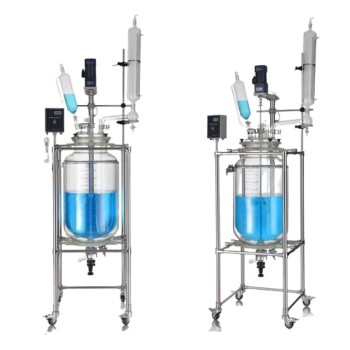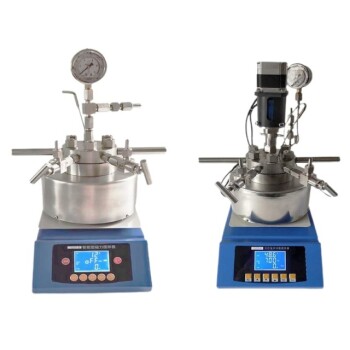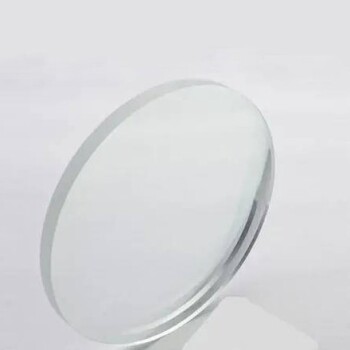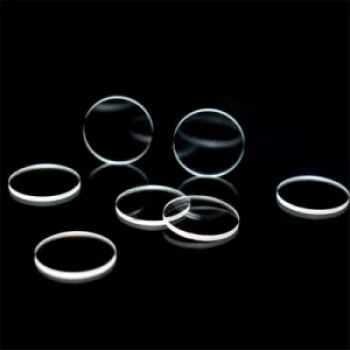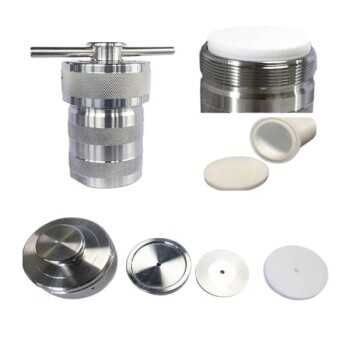Glass reactors are versatile tools widely used in chemical, pharmaceutical, and biotechnology industries, as well as in research and educational settings. Their applications span a broad range of processes, including chemical synthesis, polymerization, distillation, crystallization, extraction, purification, and concentration. They are designed to handle high-temperature reactions (up to 300℃), low-temperature reactions (down to -80℃), vacuum conditions, and various other reaction types. Their adaptability to different experimental conditions, such as temperature and pressure adjustments, makes them indispensable for processes like solvent synthesis, reflux reactions, and vacuum distillation. Additionally, glass reactors are used in producing catalysts, reagents, and inert compounds, enhancing their utility in industrial and scientific applications.
Key Points Explained:

-
Chemical Synthesis:
- Glass reactors are extensively used in chemical synthesis, where they facilitate the creation of new compounds through controlled reactions. Their transparent design allows for easy monitoring of reactions, ensuring precision and safety.
-
Polymerization:
- These reactors are ideal for polymerization processes, such as the production of resins and plastics. The ability to control temperature and pressure ensures optimal conditions for polymer formation.
-
Distillation and Purification:
- Glass reactors are commonly employed in distillation processes to separate and purify substances. Their compatibility with vacuum conditions enhances their efficiency in solvent purification and sample refinement.
-
Crystallization:
- They are used in the crystallization of chemical compounds, where precise temperature control is crucial for obtaining high-quality crystals.
-
Extraction of Natural Products:
- Glass reactors are utilized in the extraction of plant materials and natural products, making them valuable in the pharmaceutical and biotechnology industries.
-
High-Temperature Reactions:
- Capable of withstanding temperatures up to 300℃, glass reactors are suitable for high-temperature chemical reactions, ensuring stability and safety during the process.
-
Low-Temperature Reactions:
- They can also handle low-temperature reactions, down to -80℃, making them versatile for a wide range of experimental conditions.
-
Vacuum Reactions:
- Glass reactors are designed to operate under vacuum conditions, which are essential for certain chemical processes, including vacuum distillation and negative pressure reactions.
-
Solvent Synthesis:
- They are used in solvent synthesis at constant temperatures, ensuring consistent and reproducible results.
-
Reflux Reactions:
- Glass reactors facilitate reflux reactions, where reactants are continuously boiled and condensed, allowing for prolonged reaction times without loss of solvent.
-
Extraction and Separation:
- These reactors are employed in extraction and separation processes, where they help isolate desired compounds from mixtures.
-
Concentration Reactions:
- Glass reactors are used in concentration reactions, where they aid in reducing the volume of a solution to increase the concentration of a solute.
-
Stirring Reactions:
- Equipped with stirring mechanisms, glass reactors ensure thorough mixing of reactants, which is crucial for homogeneous reactions and efficient heat transfer.
-
Biochemistry and Fine Chemical Production:
- They are widely used in biochemistry for research and development, as well as in the production of fine chemicals, where precision and control are paramount.
-
Educational Settings:
- Glass reactors are also used in educational institutions for teaching and training purposes, providing students with hands-on experience in chemical processes.
-
Industrial Chemistry and Pharmaceutical Chemistry:
- In industrial and pharmaceutical chemistry, glass reactors are used to produce catalysts, reagents, and inert compounds, enhancing the efficiency and value of chemical processes.
-
Batch and Continuous Reactors:
- Glass reactors can function as both batch reactors and continuous reactors, offering flexibility in process design and scalability.
-
Adaptability to Experimental Conditions:
- Users can adjust the temperature and pressure within glass reactors to adapt to specific experimental requirements, making them highly versatile tools in chemical research and production.
In summary, glass reactors are indispensable in various industries and research settings due to their versatility, precision, and ability to handle a wide range of chemical processes. Their applications are vast, from chemical synthesis and polymerization to distillation, crystallization, and beyond, making them a cornerstone of modern chemical engineering and research.
Summary Table:
| Application | Key Features |
|---|---|
| Chemical Synthesis | Transparent design for monitoring, precise temperature control |
| Polymerization | Optimal conditions for resin and plastic production |
| Distillation and Purification | Vacuum compatibility for efficient solvent purification |
| Crystallization | Precise temperature control for high-quality crystals |
| Extraction of Natural Products | Used in pharmaceutical and biotechnology for plant material extraction |
| High-Temperature Reactions | Handles temperatures up to 300℃ |
| Low-Temperature Reactions | Operates down to -80℃ |
| Vacuum Reactions | Essential for vacuum distillation and negative pressure reactions |
| Solvent Synthesis | Ensures consistent results at constant temperatures |
| Reflux Reactions | Prolonged reaction times without solvent loss |
Unlock the potential of glass reactors for your lab—contact our experts today!


